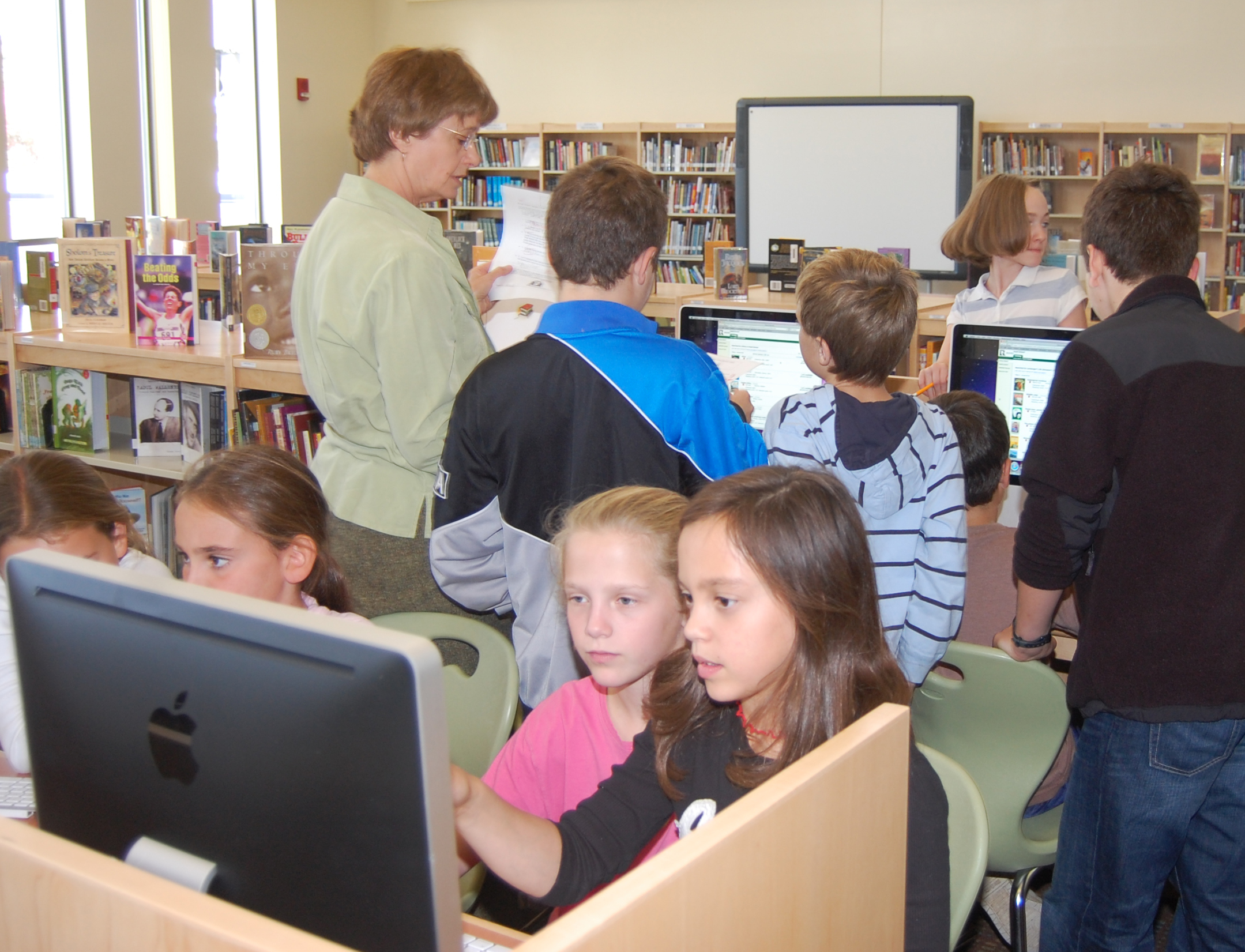“As the century unfolds, students will probably rely almost exclusively on electronic resources for their research and reading…. The institution on campus already established to support research and reading needs to fully embrace this new reality. That institution is the library.” – Tom Corbett, Executive Director of Fisher-Watkins Library at Cushing Academy, Ashburnham, MA
When Cushing Academy decided to go digital in 2009, replacing the school’s 20,000 print collection with electronic resources, librarians across the country, including myself, raised questions as to the judiciousness of this decision. Now that we are well entrenched into the 21st century, I continue to reflect on a daily basis as to the direction of the school library.
In reviewing the discussions at last summer’s American Library Association’s conference, where concerns were vigorously voiced centering on library obsolescence in the digital age, my ongoing ruminations seem justified. We at Rashi are fortunate to have a library that is not only located in a beautiful space but also contains a good sized updated print collection as well as computers for student research and project creation, and dedicated teachers who encourage the utilization of the library for free reading and research use.
I see the library as providing a safe environment for students to come and select reading materials comfortably. We may chat about their selections and how I can provide other titles on similar themes, redirect them to more age-level appropriate genres, or target a reading level to provide more confidence and comprehension. We may just chat. I entice students to interact with library resources through contests, incentives, and book talks. I invite students to hang out in the library on Monday-Thursday mornings before school, when they can play skill-oriented games on the library computers.
Where do we go from here? One direction is obviously digitization. At Rashi, we are integrating the WebPath Express link, preselected sites through the electronic catalog, the Massachusetts Board of Library Commissioners-sponsored databases, and World Book online as very viable electronic resources. We continue to encourage Google-advanced search as a way to utilize the student-learned Boolean operators and domain choices to select a better website.
The library will purchase eBook titles to host other options in reading. In a recent survey of Rashi students in grades 6-8, 83% of those who responded said that their family owned a reading device (Kindle, Nook, iPad, iTouch, or SmartPhone) and 75% said that they would have access to the reader. Close to half said that they would “check out” a title from our library, and 40% said that they would be interested in downloading audio books. We know that parents are purchasing desired titles for their children at home, and families are using the public library to download books. Several students have already expressed interest on being on a committee to select titles for purchase for the school library.
Tom Corbett of Cushing Academy has stated that librarians must still teach how to share digitized copyrighted information. He emphasizes what librarians have known since the Internet became infused in our society: research must involve more than the random facts from the Internet.
I address issues of proper research behavior when I prepare students for researching an assigned project. I have observed that some students copy and paste online information with little regard to the plagiarism they are committing. They lack a strong comprehension of the material or a synthesis of that information and they have minimal knowledge of copyright rules and the necessity for producing a bibliography – little wonder, where today accessing music, movies, and TV shows is easily attainable with no understanding of paying for the privilege. (In the Rashi library, the Thursday early morning Library Lounge provides student-requested music – purchased, only!)
Information literacy, namely website evaluation and the time-honored research rules (bibliography, copyright, original input – no plagiarism), is still in the forefront of a librarian’s tasks. Learning to dissect biased and agenda-based sites and holding onto the mantras of reliable, accurate, and current criteria for web evaluation are key to a student becoming an astute researcher. The need to collaborate with faculty to foster student research is also key. When the student sees the librarian and the teacher as a unit, melding the teacher’s goals with the resources, be they print or online, the student stays more focused.
Today, it’s not a question of if we should digitize the library. We should. What we continually need to reevaluate is how we can best assist our students with the thinking and good research skills to enhance their work. Immediate gratification cannot replace that which needs to be.


